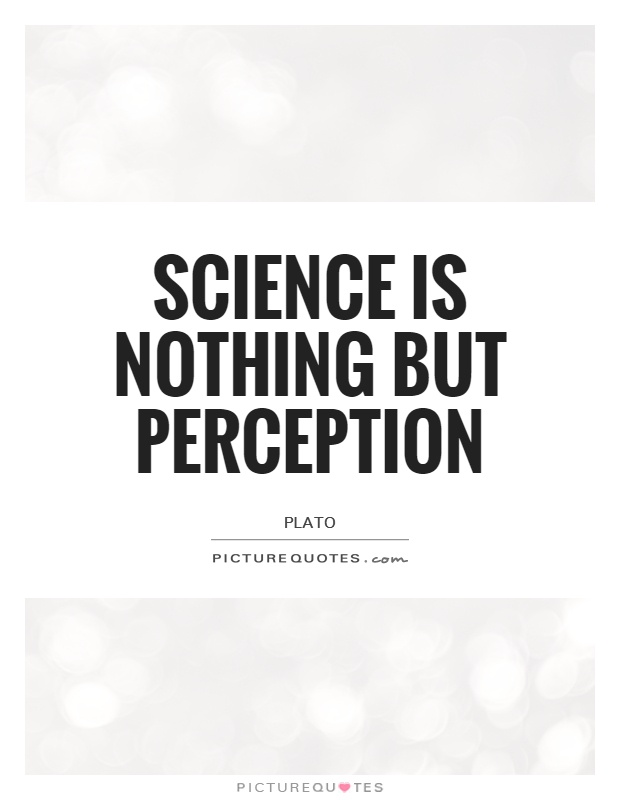Science is nothing but perception

Science is nothing but perception
In the context of Plato's philosophy, the statement "Science is nothing but perception" can be interpreted in a variety of ways. Plato was a Greek philosopher who believed in the existence of an objective reality that could only be understood through reason and rational thought. He was critical of the senses and believed that they could be easily deceived, leading to false perceptions of the world.Plato's allegory of the cave is a famous example of his skepticism towards perception. In this allegory, he describes a group of prisoners who have been chained in a cave their whole lives, only able to see shadows cast on the wall in front of them. These shadows are created by objects passing in front of a fire behind them, but the prisoners believe the shadows to be the true reality. When one prisoner is freed and sees the outside world for the first time, he is initially blinded by the sunlight and struggles to comprehend the true nature of reality.
This allegory can be seen as a metaphor for the limitations of human perception and the importance of reason and intellect in understanding the world. Plato believed that true knowledge could only be obtained through the use of reason and logic, rather than relying on the unreliable senses. In this sense, science, which is based on observation and experimentation, can be seen as a form of perception that is limited by the fallibility of the senses.
However, it is important to note that Plato also believed in the existence of universal truths that could be discovered through reason. While he was critical of perception, he did not reject it entirely. Instead, he believed that perception could be a starting point for understanding the world, but that true knowledge could only be obtained through the use of reason and intellect.












 Friendship Quotes
Friendship Quotes Love Quotes
Love Quotes Life Quotes
Life Quotes Funny Quotes
Funny Quotes Motivational Quotes
Motivational Quotes Inspirational Quotes
Inspirational Quotes